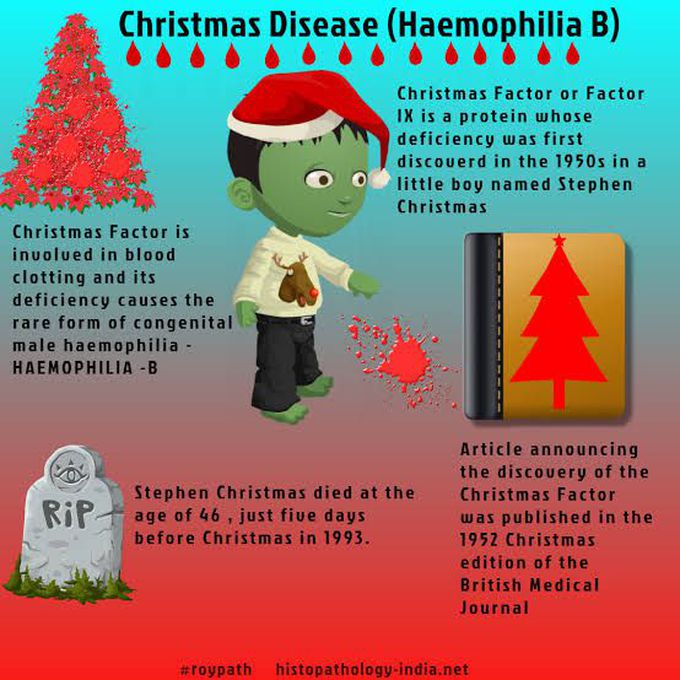


Symptoms of christmas disease
Hemophilia B symptoms are classified as mild, moderate or severe. Healthcare providers classify hemophilia symptoms by the level of factor 9 in people’s blood. Mild hemophilia B People who have factor 9 levels between 6% to 49% have mild hemophilia B and mild symptoms. In some cases, people with mild hemophilia B aren’t diagnosed until they’re adults and need surgery, give birth, have a serious injury or if they’re female, seek treatment to ease very heavy periods. Moderate hemophilia B People who have factor 9 levels between 1% to 5% have moderate hemophilia B and moderate symptoms. Children with moderate hemophilia B typically start showing symptoms when they’re 18 months old. These children may have the following symptoms: Bruises: They bruise very easily. Unusual bleeding: If they have surgery, have an injury that causes bleeding or have a tooth pulled, they’ll bleed more than is normal and for longer than expected. Spontaneous bleeding: Rarely, they’ll begin to bleed for no apparent reason. Severe hemophilia B People with factor 9 levels below 1% have severe hemophilia B and severe symptoms. Some children who have severe hemophilia B bleed as they’re being born, right after they’re born or when they’re undergoing circumcision. Other children develop symptoms a few months after they’re born. Common symptoms include: Bleeding: Babies and toddlers may bleed from their mouths after minor injuries, like bumping their mouths on a toy. Swollen lumps on their heads: Babies and toddlers who bump their heads often develop goose eggs — large round lumps on their heads. Fussiness, irritability or refusing to crawl or walk: These symptoms may happen if babies and toddlers have internal bleeding into a muscle or joint. They may have areas on their bodies that look bruised and swollen, feel warm to your touch or make your child hurt when you gently touch the area. Hematomas: A hematoma is a mass of congealed blood that gathers under babies’ or toddlers’ skin. Babies and toddlers may develop hematomas after receiving an injection. Breathing difficulties: Sometimes, bleeding may cause your child’s tongue to swell so much that it blocks their airway.

